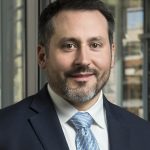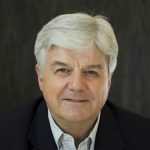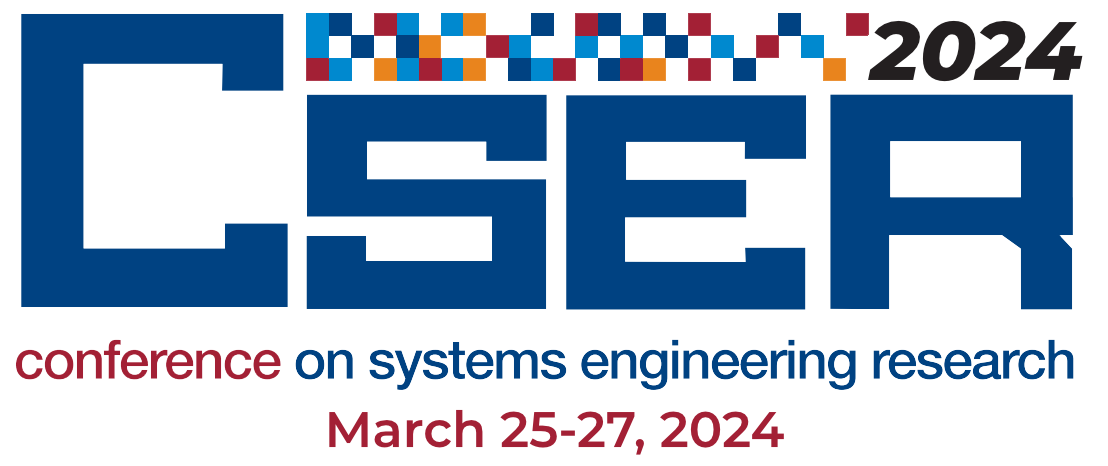T. Charles Clancy, PhD, Virginia Tech
Title: Advances in Artificial Intelligence and the Impact on T&E
Bio: Charles Clancy is the Bradley Professor of Electrical and Computer Engineering at Virginia Tech where he serves as the Executive Director of the Hume Center for National Security and Technology. Clancy leads a range of strategic programs at Virginia Tech related to security, including the Commonwealth Cyber Initiative. Prior to joining VT in 2010, Clancy was an engineering leader in the National Security Agency, leading research programs in digital communications and signal processing. He received his PhD from the University of Maryland, MS from University of Illinois, and BS from the Rose-Hulman Institute of Technology. He is co-author to over 200 peer-reviewed academic publications, six books, over twenty patents, and co-founder to five venture-backed startup companies.

Joseph C. Kloiber, Northrop Grumman Mission Systems
Title: Full-Stack MS&A – Fast, Cheap, & Right.
Bio: Joseph “Joe” Kloiber is the Director, Systems Engineering for Modeling, Simulation, & Analysis (MS&A) for Northrop Grumman Mission Systems, Emerging Capabilities Development (ECD), leading Full-Stack MS&A activities for the sector. In this systems engineering role, Mr. Kloiber is responsible for providing guidance and establishing processes for connecting the resources and data products from component level technologies to mission applications across the business. Over the course of his nearly 20 year career, he has participated in several MS&A activities across the electro-magnetic spectrum supporting the United States Navy, United States Air Force, the National Reconnaissance Office (NRO), and National Geospatial-Intelligence Agency (NGA). These activities include service as the MS&A Integrated Product Team Lead for several advance weapons systems including AMRAAM, the Advanced Medium Range Air-to-air Missile and Technology Fellow with NRO. He received a BS from Niagara University and an MS from The Rochester Institute of Technology.

Wouter Leibbrandt, TNO
Title: Trends in high-tech systems: digital twins and intelligence
Bio: Wouter Leibbrandt is Science and Operations Director of ESI, an industry and academia sponsored research center hosted by TNO. ESI focusses on the development of new methods and techniques for design and engineering of increasingly complex high-tech (embedded) systems. It does so in strong partnership and close collaboration with leading high-tech companies such as ASML, Philips, Thales, NXP, Océ, Thermo-Fisher and DAF as well as with leading academic groups in the Netherlands and across Europe.
Until early 2016 Wouter was with NXP Semiconductors for 10 years, where he managed the Advanced Applications Lab, investigating new application concepts around future advanced silicon products, driving secure connections for a smarter world. The recurring theme here is that everything is getting connected with everything (IoT). Before joining NXP, he was with Philips Research labs for 14 years, managing a variety of projects and departments. From 2004 to 2006 he lived and worked in China, founding and managing part of the Philips Research labs in Shanghai. He serves in advisory roles to several academic departments and curricula and is on the steering board of the European ARTEMIS Industry Association. Wouter holds a PhD in physics from Utrecht University.

William B. Rouse, Stevens Institute of Technology
Title: Systems Engineering of the US Population Health Ecosystem
Bio: William B. Rouse is Professor within the School of Systems and Enterprises at Stevens Institute of Technology and Professor Emeritus, and former Chair, of the School of Industrial and Systems Engineering at the Georgia Institute of Technology. His research focuses on mathematical and computational modeling for policy design and analysis in complex public-private systems. Recent books include Computing Possible Futures, Universities as Complex Enterprises, Modeling and Visualization of Complex Systems and Enterprises, and Understanding and Managing the Complexity of Healthcare. He is a member of the National Academy of Engineering and fellow of IEEE, INCOSE, INFORMS, and HFES. Rouse received his B.S. from the University of Rhode Island, and his S.M. and Ph.D. from MIT.

Prof. Martin Törngren, KTH Royal Institute of Technology (Stockholm, Sweden)
Title: Opportunities, risks and engineering methodologies considering a new era of autonomous, “smart” and interacting cyber-physical systems of systems
Bio: Martin Törngren has strong expertise in embedded and distributed control systems, safety, and systems architecting. Multidisciplinary research has been characteristic throughout his career. He has been a pioneer in bridging the gaps between automatic control and real-time distributed systems, worked closely with industry, created one company and one startup. In recent years he has devoted research to architectures and design methodologies to deal with complex automated cyber-physical systems. In 2017 he established a KTH Digital Innovation Hub on Industrial Digitalization based on experiences from H2020 innovation projects and is one of the creators of the recent Nordic academic network on the Industrial Internet of Things. He served as the technical coordinator of the European ARTEMIS project iFEST with 21 partners. In 2008 he founded ICES, the KTH industry embedded systems competence network, which has grown to 30 members, created the KTH embedded systems masters’ program and many spin-off research projects
(Extended bio)

